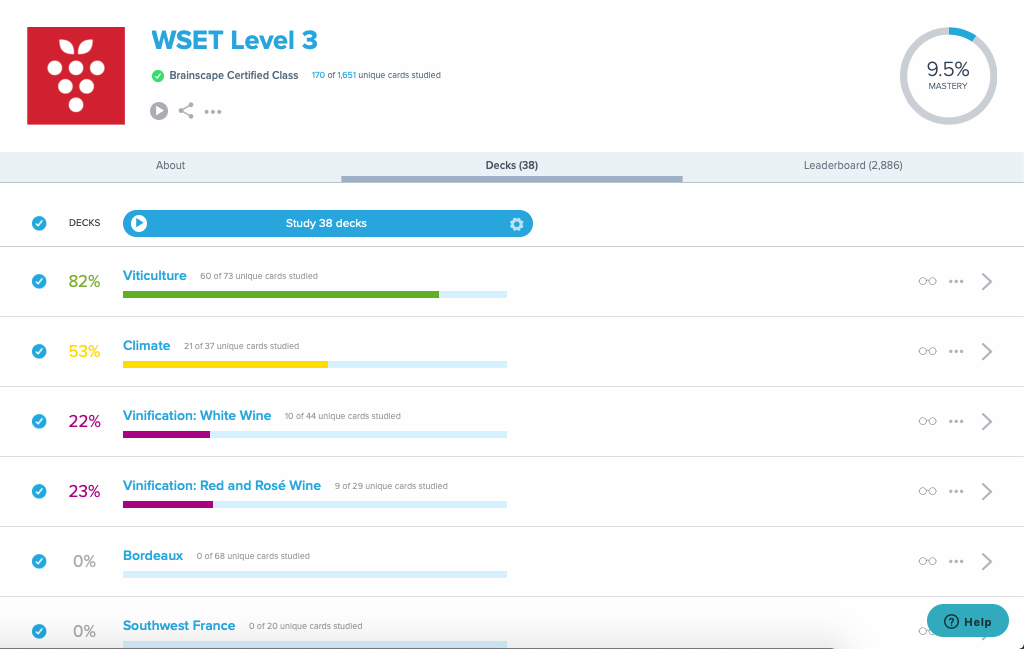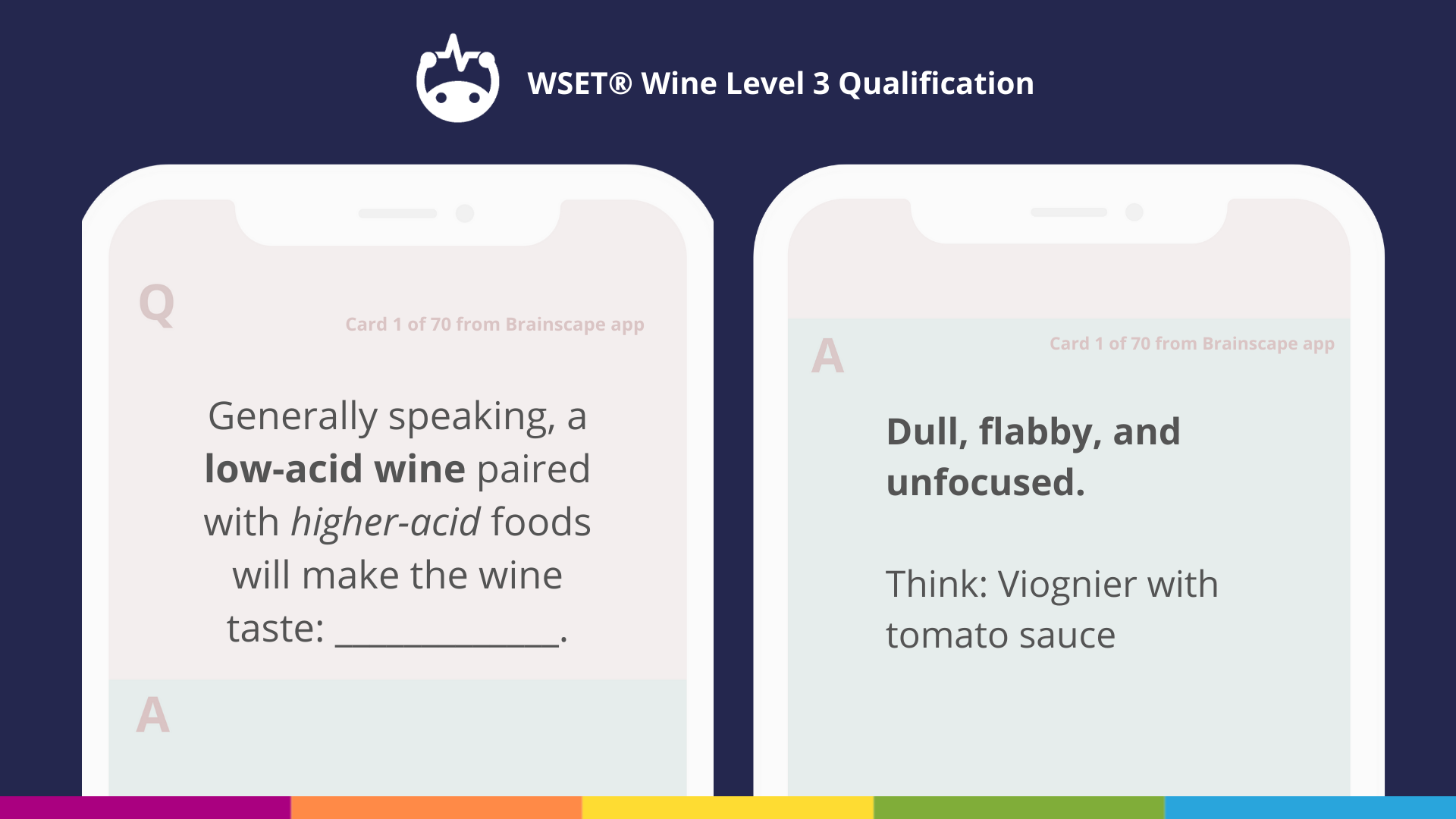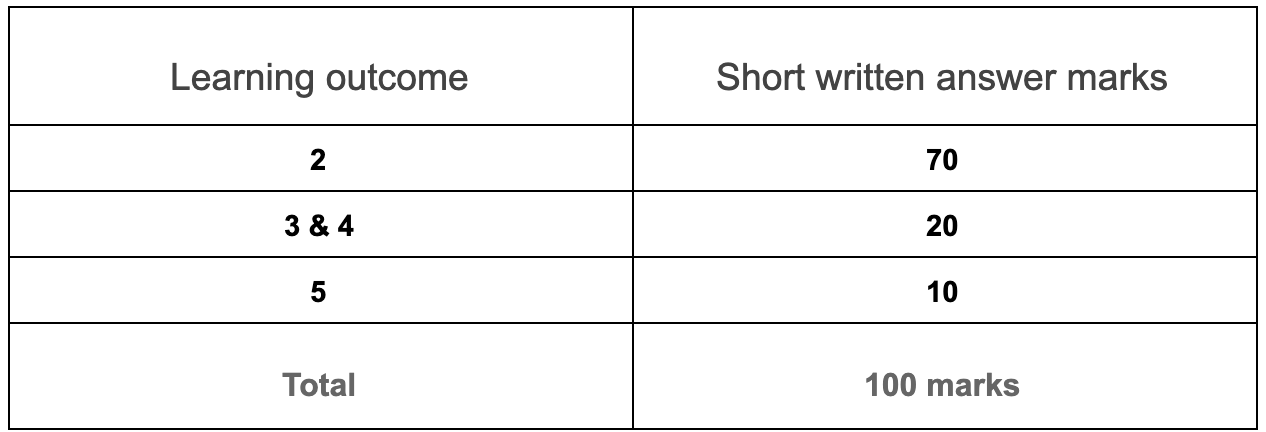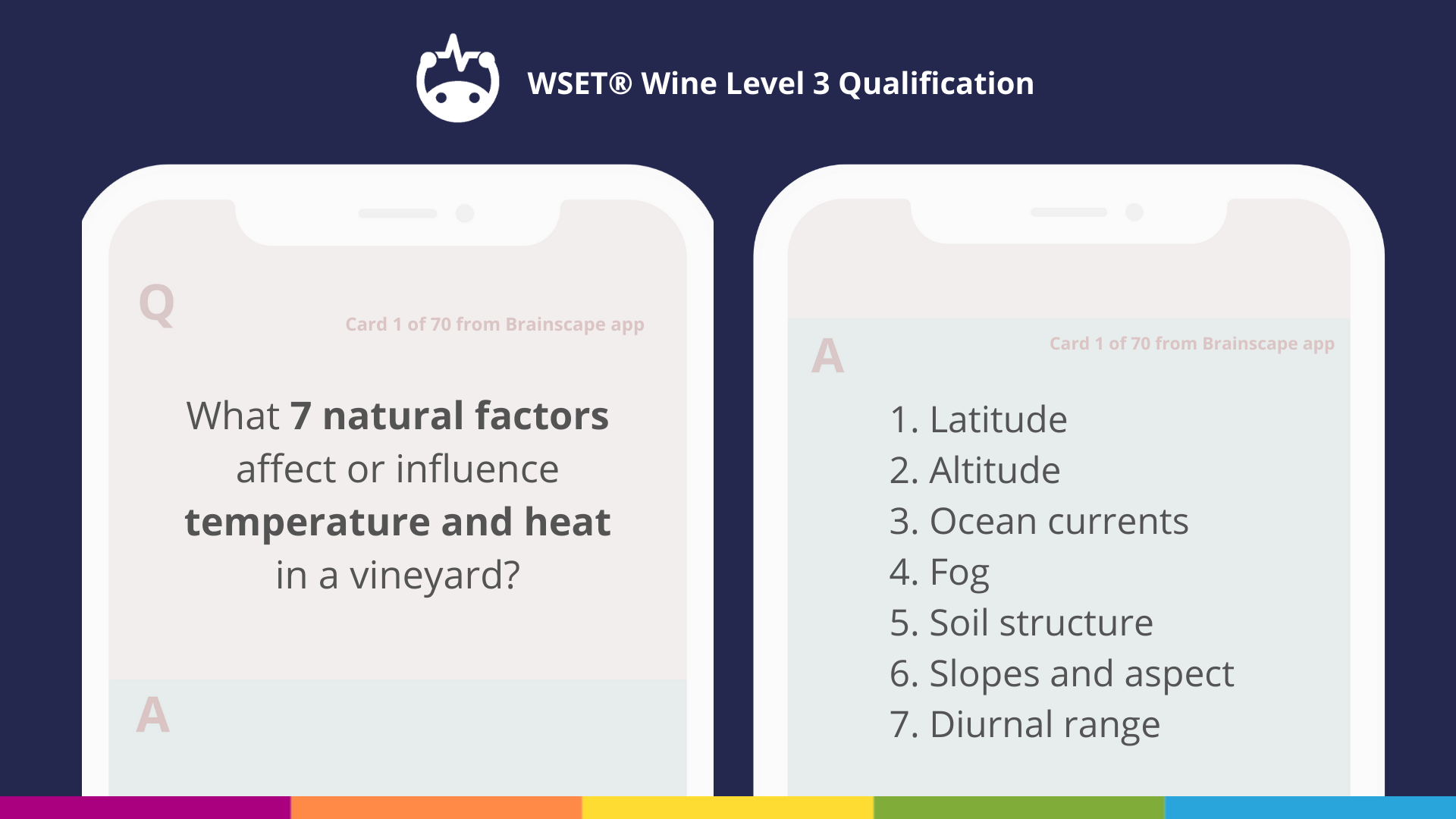Let me tell you a true story.
I have been driving for 20 years now—accident-free, I might add. (*Knocks on wood*.) Recently, however, I moved to a new country and was required to retake the road theory exam in order to get my driver’s license. I thought: okay, this sucks. But how hard can it be? I’ve been driving for half my life. I know a stop sign when I see one. It’ll be easy.
BOY was I wrong.
I thought I knew the theory but the questions in the online mock exam threw me hard for a loop. And it just goes to show: you can know a subject and you can know it well. But if you don’t know how to answer the questions—if you don’t know how to adequately demonstrate your mastery of the subject to the examiner—you could very well FAIL.
This is why practicing an exam before you take it is so crucially important, particularly for high-stakes, knowledge-intensive examinations like the Wine & Spirits Education Trust™ (WSET*) Level 3. Practicing tells you:
- How the exam is formatted
- How the questions are phrased
- How much time you should allocate per section
- What is expected of you
Knowing the answers to these questions helps you study more efficiently and feel a lot less anxious on exam day. And this can mean the difference between scraping through and passing with distinction.
THIS is exactly why you’re here, isn’t it? You’re looking for a practice test for the WSET 3.
Brainscape has put together just such a practice exam (with answers), which you automatically receive for FREE via email when you sign up for Brainscape’s WSET 3 flashcards. <<– Click to subscribe and receive your practice test via email!
Also, in this guide, we’ll show you the WSET Level 3 exam format and tips on how to tackle each of its three major sections:
- Tips on taking a WSET Level 3 practice test
- How is the WSET Level 3 exam formatted?
- Advice on answering WSET 3 multiple-choice questions
- Advice on answering WSET 3 short written questions
- Get Brainscape’s WSET Level 3 practice exam
Ready? Let’s dive in.
Tips on Taking a WSET Level 3 Practice Test
Taking the WSET Level 3 practice exam is a hugely beneficial part of your preparation for this exciting qualification in wine. But there are a few things you need to know beforehand that’ll help you get the most out of this preparation:
- Start practicing as early on as possible
- In fact, start before you learn
- Use a WSET 3 practice test as a way to break the monotony
- Target your weaknesses
- Treat your WSET 3 practice exam like it’s the REAL exam
1. Start Practicing as Early on as Possible
Don’t pick up a WSET 3 practice test the week before your exam. Start practicing as early on as possible, right from the beginning of the course, so that you view the content through the lens of the examiner. This will keep your studying super-efficient.
2. In Fact, Start Before You Learn
We're not kidding! You should review past WSET 3 exams before you’ve even read through the material because it primes your brain for learning.
Even though it seems a little scary to see questions on stuff you may never have even heard of before, it creates a knowledge deficit that your brain becomes hungry to fill. Then, when you see that information in the textbook or hear it in class, your brain will have an Oprah-style “A-ha!” moment and latch on to it.
This helps establish a deeper neural pathway to that information and, therefore, a stronger memory.
3. Use a WSET 3 Practice Test to Break the Monotony of Study
When you get tired of studying, working through a WSET Level 3 practice exam is a great way to keep learning without pushing your brain into cognitive overload (stuffing more information into it than it’s capable of retaining).
Putting your knowledge to the test helps to reinforce what you’ve already learned. Also, as we mentioned in the previous point, when you encounter questions you don’t know the answers to, it establishes that sweet knowledge deficit that your brain will itch to fill when you pick up the textbook again.
4. Target Your Weaknesses
Taking a practice test will also highlight your weaknesses and the chapters you need to dedicate a little more time to. Rather than skip over those questions (or hope that they don’t show up in your final exam) focus on those knowledge gaps. You’ll feel so much more confident walking into your real exam. And you’ll do so much better, too!
Pro Tip: Use a digital flashcard app to make flashcards for the facts you find especially difficult to remember. Our spaced repetition algorithm will show you the flashcards you struggle with over and over again until they become as intimately familiar to you as your underpants.
Better still, use Brainscape’s WSET 3 flashcard collection—which has been curated by our panel of certified wine experts—and practice the flashcard decks you find difficult. Remember, you’ll automatically get emailed our free WSET 3 practice exam (with answers) when you do!

5. Treat Your WSET 3 Mock Exam Like It’s the Real Exam
Take the WSET Level 3 practice exam like it’s The Real Thing.
In other words, time yourself and see if you can comfortably answer everything within the allotted time frame. If you struggle, try to figure out a method that enables you to efficiently work through the questions in the allotted two-hour timeframe.
For example, some students prefer to get short written answers done first. and then the multiple-choice section, which is quicker and easier. Others prefer to get the juices flowing with the multiple choice questions first and then tackle the longer written questions.
The best method is the one that works for you.
Also: don’t refer to your notes for help. You need to feel the sting of the knowledge deficit in order to prime your brain to hold on to that information when you review it after.
With these five crucial tips addressed, let’s now show you how the exam is formatted and tips on tackling its theoretical portion.
How is the WSET Level 3 Exam Formatted?
The WSET Level 3 Award in Wines consists of two major units:
- A two-hour, closed-book theory examination (Unit 1), which is broken down into 50 multiple choice questions worth one mark each; and four short-written questions (sort of like mini-essays) worth 25 marks each, for a total of 150 marks.
- A 30-minute tasting examination (Unit 2), in which you are required to blind taste, assess, and identify two still wines, one red and one white.
In order to pass the WSET 3, you need to score a minimum of 55% in each of these units.
Advice on Answering WSET 3 Multiple-Choice Questions
- Read the question carefully
- Answer the question before looking at the answers
- Watch your timing
- Use Brainscape’s flashcards to study
- Know the exam weighting
1. Read the Question Carefully
Make sure you understand what the examiners are asking.
2. Answer the Question Before Looking at the Answers
Try to answer the question in your head BEFORE reading through the multiple-choice answers. While the examiners are not trying to trick you, you don’t want to risk being overwhelmed or confused by the array of answers.
3. Watch Your Timing
If you’re unsure of an answer, move on to the next question. You can always come back and give it deeper consideration but for now, you don’t want to squander too much time. Besides, sometimes it just takes a bit of momentum to get your brain going and cranking out answers.
4. Use Digital Flashcards to Study

Brainscape has broken the entire WSET Level 3 curriculum into easy-to-digest flashcards, which pose each fact as a question-and-answer pair. This is the PERFECT preparation for a knowledge-intensive examination like the WSET 3. Also, it teaches you to answer questions using active recall, which is a far more efficient way to learn (and remember what you learn).
So make sure you check out our WSET Level 3 flashcard collection to equip yourself with a powerful study tool for this high-stakes examination. As soon as you download them, we'll send you a FREE practice test for WSET LEvel 3!
5. Know the Exam Weighting
According to the WSET 3 Specification Handbook, the multiple-choice section is weighted as follows:

- 56% Of the questions test your ability to describe the characteristics of the principal STILL WINES of the world.
- 16% Of the questions test your ability to identify the principal natural and human factors in the vineyard and winery that are involved in the production of still wine.
- 10% Of the questions test your ability to describe the characteristics of the principal SPARKLING WINES of the world.
- 10% Of the questions test your ability to describe the characteristics of the principal FORTIFIED WINES of the world.
- 8% Of the questions test your ability to provide information and advice to customers and staff about wines.
Advice on Answering WSET 3 Short Written Questions
- Read the question carefully
- Identify the command words
- Plan your answers before writing them
- Know the exam weighting
- Be prepared to answer questions on regional comparisons
- Practice your essay-writing
1. Read the Questions Carefully
This is especially important for these longer written answers because you can waste a lot of time going off track. Make sure you specifically address what the question is asking. This leads to our next tip ...
2. Identify the Command Words
You want to know exactly what the examiner wants you to demonstrate so that you can deliver the goods and score maximum marks. If they say “list” then they’re looking for a list, not a full-blown thesis. If they say “describe” then they want greater detail. And if they say “compare” they want you to relate and contrast one thing with another.
3. Plan Your Answers Before Writing Them
Once you’ve read the question, use a piece of scrap paper to outline your answer as either a concept map or a bullet-point list. Remember, each question is worth 25 marks so make sure you jot down 25 marks’ worth of information. Then, use your brainstorm as a framework to craft a well-written, comprehensive response.
Don’t write the whole answer on the scrap paper and then transfer it over to the paper you’re handing in or else you’ll run out of time.
4. Know the Exam Weighting
According to the WSET 3 Specification Handbook, the short written answer section is weighted as follows:

- 70% Of the questions test your Learning Outcome # 2 (still wines)
- 20% Of the questions test Learning Outcome # 3 & 4 (sparkling & fortified wines)
- 10% Of the questions test Learning Outcome # 5 (providing information and advice about wines to staff and customers)
5. Be Prepared to Answer Questions on Regional Comparisons
The WSET 3 examiners love asking questions that compare and contrast two different wine-producing regions that may grow the same grape but produce wines of different styles. For example Premier Cru White Burgundy versus large production California Chardonnay.
Your job is to compare the two regions/wines taking into account everything from “shoot to shelf” (or as requested in the phrasing of the question). Think about factors like climate, geography, yields, harvesting, fermentation, maturation, quality, and market, etc.
6. Practice and Get Feedback on Your Essay-Writing Skills
Putting together a well-written essay takes a bit of practice. It’s kind of like a sausage machine: from this big mash-up of information in your brain, you want to turn out a neatly packaged string of sentences, the verbal feast of which leaves the examiner satisfied.
My advice is to make mini-essay writing practice a part of your study habit right from the beginning. Whenever you finish a large section of coursework, practice with a few essay questions. You can even do this “open book”. The goal here is not to know all the information by heart (although you can try that closer to your examination). It’s to construct a cogent and comprehensive answer.
Once you’ve had a practice run, ask your WSET 3 instructor to read through your work and give you feedback on (1) whether or not you succinctly answered the question (2) your logical delivery of content, and (3) the content itself (because even though you may have used the textbook to find the answers, if you did leave out a point or two, this will be a valuable learning curve).
Get Brainscape’s WSET Level 3 Practice Exam
Aah, now for the goods you’re after!
As we have mentioned, Brainscape has put together a practice exam for the WSET 3 (with answers), which you will automatically receive for FREE via email when you sign up for Brainscape’s WSET 3 flashcards!
(You can download these flashcards for free, and automatically get that practice exam for free too! But if you want to study more than just the first deck of our WSET 3 flashcards, you'll need Brainscape Pro, which is totally worth it! Also, we'll email you the answers to the test when you upgrade!)
The real meat here, of course, are the flashcards themselves, which Brainscape has painstakingly put together with the help of our panel of wine experts. These flashcards break down the course curriculum into a constellation of question-and-answer pairs ... like the exam itself!
And because these flashcard questions are strictly aligned with the official WSET Level 3 textbook, they're great practice too.

Just like the exam, our flashcards ask you questions on the content. BUT, rather than selecting answers from multiple-choice lists, you must actively recall them from memory, which is actually much more effective way to learn and prepare.
Moreover, our spaced repetition algorithm will repeat the flashcards you struggle with more often, thereby targeting your weaknesses and helping you learn more efficiently. Again, this method is super proven by cognitive science to help you learn more effectively.
A combination of Brainscape’s mock exam for the WSET 3 (with answers) and our expert-curated WSET 3 flashcard collection will put you in the ideal position to score a distinction in the exam!
Click here to subscribe and get your free WSET 3 mock exam.
A Final Note on Practicing for the WSET 3 Exam
Ta-dah! You’ve made it to the end of our guide on best practices for taking a WSET Level 3 practice test!
We’d just like to finish off with one final word of advice. There’s only one thing that will make you feel more confident about taking the WSET 3 than acing a WSET 3 mock exam. And that’s good, hard studying. If you immerse yourself in the world of wine with great vigor and jubilance from day one, you’ll do just fine!
And remember to practice, practice, practice. Brainscape’s WSET 3 practice exam will point out your weaknesses and give you a chance to target them; it’ll help you consolidate what you’ve learned through studying and in class; it’ll let you know what to expect and how to pace yourself, and it’ll help calm your pre-exam nerves and anxieties.
Oh, and in case you were wondering: I passed my road knowledge test ... with flying colors.
Additional Reading
- What are the exam topics on the WSET Level 3?
- How to study for the WSET Level 3 wine exam more efficiently
- Wine tasting tips for the WSET Level 3 exam
- How to answer WSET short-answer questions
*Disclaimer: Brainscape has worked with top wine experts to supplement the official publications and preparation offered by WSET. We are not officially endorsed by or connected to WSET itself.
References
Dunlap, J. C. (1996a, November 30). Preparing students for lifelong learning: A review of instructional methodologies. ERIC. https://eric.ed.gov/?id=ED409835
Karpicke, J. D. (2012). Retrieval-based learning: Active retrieval promotes meaningful learning. Current Directions in Psychological Science, 21(3), 157-163.
Paul, A. M. (2024, February 20). Researchers find that frequent tests can boost learning. Scientific American. https://www.scientificamerican.com/article/researchers-find-that-frequent-tests-can-boost-learning/
Wine & spirit education trust (WSET). WSET. (n.d.-a). https://www.wsetglobal.com/
WSET systematic approach to Tasting® (SAT). WSET. (n.d.-d). https://www.wsetglobal.com/knowledge-centre/wset-systematic-approach-to-tasting-sat/
